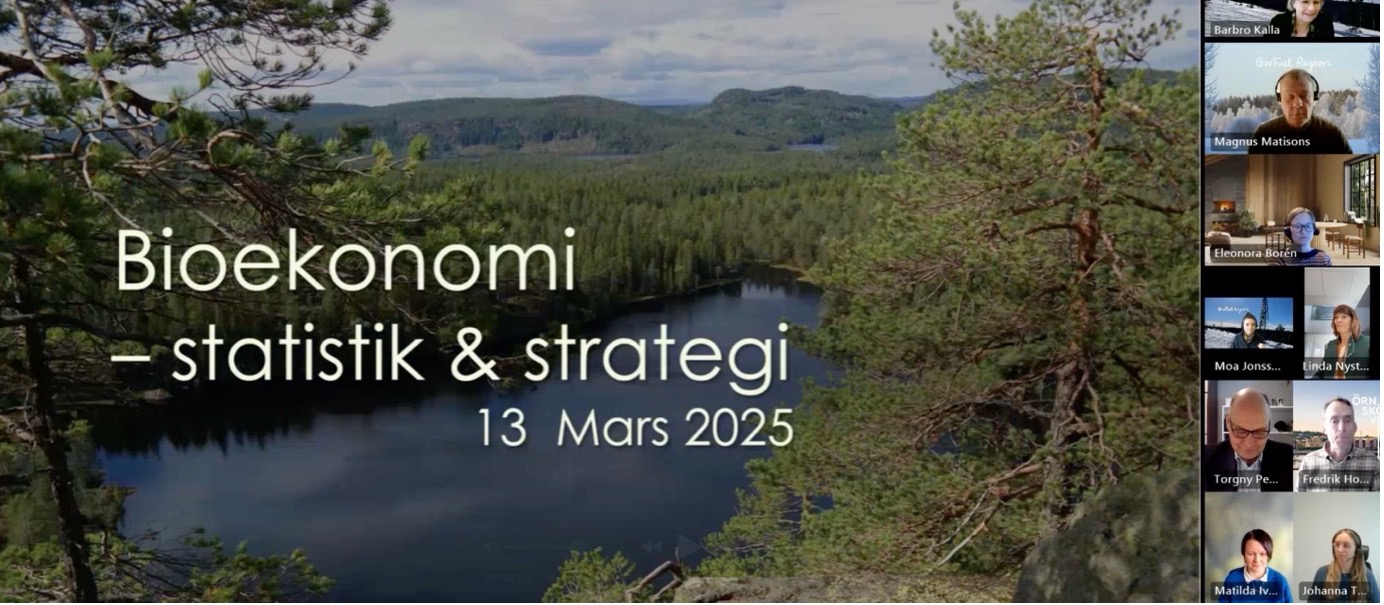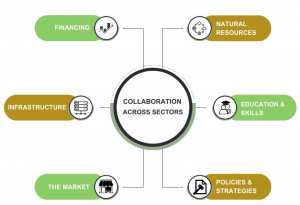Sweden unveils key bioeconomy statistics and regional blueprint
March 14, 2025

Today marks a significant milestone in Sweden’s bioeconomy journey as the latest statistics are unveiled to help all regions monitor their progress. The event highlights years of collaboration and aims to provide valuable insights into bioeconomic development across the country.
Then followed the introduction of an inspiring example of a regional bioeconomy blueprint for northern Sweden. This blueprint has been developed within the BioModel4Regions project, where northern Sweden is one of six pilot regions in Europe working to advance sustainable bioeconomic practices.
The presentation of our work to the diverse webinar audience of 36 people was a great pleasure. The webinar was attended by strategists from the EU level through to the national level and, above all, regions from across Sweden. Leading innovation clusters were well-represented. Participating Analysts and Communicators will help exploit the results.
“The main achievement of the event is that we have brought together bioeconomy stakeholders and given them two important tools to further boost the bioeconomy in Swedish regions,” says Magnus Matisons”, BioFuel Region.
Towards a bio-based economy in Northern Sweden
The blueprint is a strategic framework for northern Sweden’s transition to a competitive, sustainable and resilient bioeconomy based on then national ambitions.

The methodology used has highlighted the key areas that our region can and should develop. Which are cross-sector collaboration, financing, infrastructure, product development and market, natural resources, education and skills and policy and strategies. Connected to the key areas it offers a smorgasbord of actions to inspire the development of the bioeconomy.
The scope of this blueprint focuses on the forestry bioeconomy, but the recommendations can be applied to the other bioeconomy sectors. The blueprint can be used as a foundation for the four northern politically steered regions in their work to revise and update strategies and policies pertinent to the bioeconomy sector.
 Share
Share
